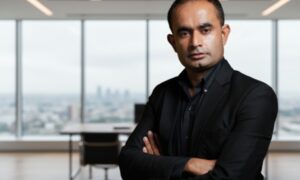Startup incubation has traditionally been concentrated in global hotspots like Silicon Valley, London or Singapore. These hubs are known for venture capital networks and a relentless entrepreneurial pace, but they are also limited by high entry barriers, overwhelming costs and an exclusivity that shuts out innovators without access to capital. In Manjeri, Kerala, Silicon-Jeri is redefining this model by embracing inclusivity as its core principle. Instead of focusing on polished startups primed for rapid scaling, the hub’s accelerator, Zil Money Cubator, actively seeks students with raw ideas, freelancers with prototypes and small-town founders with ambition. These individuals—often invisible to traditional accelerators—are welcomed into an environment designed to help them grow.
This inclusive approach reshapes the entrepreneurial landscape in Manjeri. Resources and mentorship are now within reach for innovators who once believed they had to leave Kerala to pursue their dreams. Workshops, hackathons and collaboration programs provide practical exposure, while incubation support lowers the barriers to experimenting with ideas. As a result, entrepreneurship itself becomes accessible and normalized, moving from a privilege for the few to an opportunity for many. This cultural shift not only democratizes access to innovation but also fosters a sense of community among participants.
The distinction between Silicon-Jeri and established accelerators is philosophical as much as practical. While traditional hubs often measure success through valuations and exit strategies, Silicon-Jeri emphasizes endurance. Startups are encouraged to solve real problems, meet genuine needs and build value that extends beyond short-term financial metrics. By focusing on sustainability rather than speed, the hub teaches entrepreneurs how to build businesses that last. This ethos is reinforced by the surrounding ecosystem: engineers, mentors, educators and other founders share knowledge openly, creating an atmosphere where collective progress is valued alongside individual achievement.
Inclusivity and sustainability are not just philosophical ideals; they have tangible economic implications. By incubating a wide range of startups—some small, some ambitious—Silicon-Jeri ensures that innovation permeates the local economy. A student-led fintech project might evolve into a service that benefits small businesses across Kerala, while a founder experimenting with AI could develop tools that improve agricultural supply chains. Even ventures that do not scale globally contribute to regional employment, efficiency and diversity, creating an ecosystem of resilience rather than a handful of unicorns. This broad base of activity establishes entrepreneurship as a cultural norm and provides a safety net for innovators.
At a global level, Silicon-Jeri’s model challenges the assumption that meaningful startup incubation must be concentrated in elite hubs. By demonstrating that a vibrant, inclusive accelerator can thrive in a small town, the hub offers a blueprint for regions seeking to cultivate innovation without replicating the costs or culture of Silicon Valley. It shows that the essence of incubation lies not in geography but in vision: creating spaces where ideas can be nurtured, risks are encouraged and support structures transform failure into a stepping stone. The planned expansion into a one-hundred-acre campus with research labs, vocational academies and expanded incubation facilities takes this vision even further. Startups will not only have resources to grow but also the cultural grounding to stay connected to their communities, ensuring that success strengthens the ecosystem that produced it.
Central to this model is Sabeer Nelli’s belief that innovation should be democratized. Having experienced the opportunities of global business and the limitations faced by small-town entrepreneurs, he has crafted a platform that measures success not only in capital raised but in lives transformed. Silicon-Jeri’s inclusive incubation model illustrates that high-impact entrepreneurship can emerge from unexpected places when vision meets community support. The hub’s story suggests that the next wave of innovation may come from regions willing to imagine a different way of building. By rewriting the narrative of what innovation looks like and where it can happen, Silicon-Jeri inspires other towns to believe that they too can nurture global aspirations.
As the hub continues to evolve, some startups will grow into global players, others will serve local needs, and some will fail. But in this ecosystem, even failure has value: it contributes to a culture where risk is embraced and lessons are shared. Over time, this creates not just companies but confidence—confidence in a region’s ability to innovate, confidence in young people’s ability to dream and confidence in the idea that small towns can nurture global visions. Silicon-Jeri’s inclusive incubation model therefore serves not only as a local economic engine but as a beacon for inclusive, sustainable innovation worldwide.































